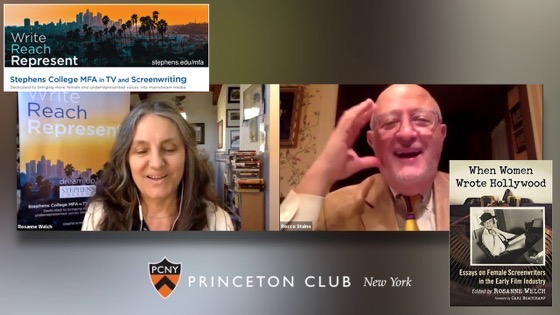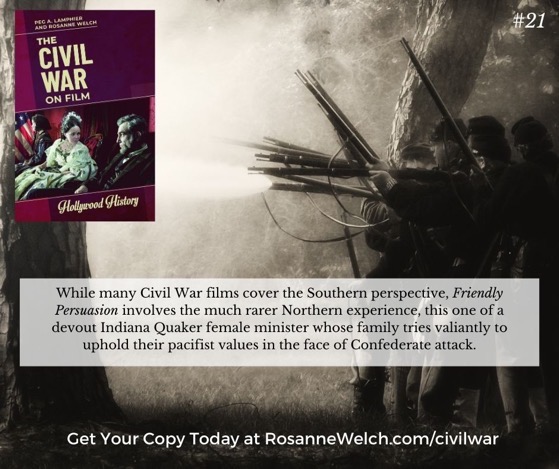In terms of the American Civil War, the Friends experienced the same conflicts of brother against brother that infused the North and the South, except for them it was a conflict of beliefs. They had declared their adamant opposition to the importation of slaves as early as 1696 at their Society of Friends (Quaker) Yearly Meeting. As slavery took hold of the South anyway, many became fervent abolitionists willingly breaking the law to aid enslaved people on their escapes via the Underground Railroad.
Movies profiled in this book:






![Watch this presentation on “When Women Wrote Hollywood” for the Empire State Center for the Book [Video] (1 hour)](https://rosannewelch.com/wp-content/uploads/2021/02/EmpireStateCenterforBookLogo-1.png)




